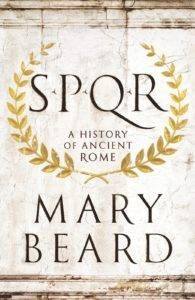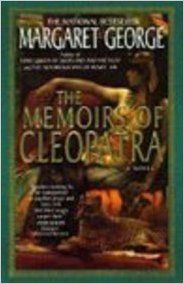
6 Books About Rome For The Ides of March
“Beware the Ides of March.” There are few among us who don’t know this phrase, uttered by a soothsayer to Julius Caesar before his assassination, made famous by Shakespeare’s pen. But what IS the Ides of March? (What ARE the Ides? What is an Ide?) Welp, originally, the calendar used to be more lunar. The earliest Roman calendars, in use around 753 BCE, had ten months and each month used three lunar marks: Kalends, Nones, and Ides. Kalends was the new moon, the first day of the month. Nones was the first quarter moon, usually around the fifth-seventh day. Ides was the full moon, usually around the 13th–15th. March 15th used to be the new year and was a time of celebration. Julius Caesar himself was the one who changed the Roman new year from March to January. He consulted with astronomers, then added ten days and a leap year. People liked the new year being in March; maybe changing that holiday was the straw that broke the camel’s back and Caesar made his own bad luck. Probably not, but you know. I had to wonder.
So the Ides weren’t originally associated with anything bad or doom and gloom. It was just part of the old calendar. I rather like it, myself. I have a dear friend whose birthday is on the Ides of March. It was after Caesar’s assassination that the date acquired its darker connotations, and mostly only after Shakespeare’s play. Other things have happened on March 15 that contributed to the date’s bad reputation: the classification of the SARS virus as a global health threat in 2003; Hitler’s invasion of Czechoslovakia in 1939; a bigass blizzard in North Dakota in 1941, which occurred without warning; and, probably the worst thing, online chat rooms debuted, triggering the demise of grammar across the globe…way back in 1971. Holy shit. I am an old. Not as old as ancient Roman stuff, but sometimes I feel like it.
Here are a couple books I’ve enjoyed about Rome and its Empire, either in a general sense or set specifically during Julius Caesar’s time.
 SPQR by Mary Beard
SPQR by Mary Beard
A great history of ancient Rome by one of the premiere Classicists of our time. This is a big book, but it was a quick read nonetheless.
Calendar: Humanity’s Epic Struggle to Determine a True and Accurate Year by David Ewing Duncan
Really, this is here because it has a great section on the Roman calendar and how it got changed from the old system they used to the system Caesar implemented. Also, the idea of a micro-history about time has a pleasing irony to it.
The Gallic War by Julius Caesar
I figure a list of books about Julius Caesar ought to include something by the man himself. Gird your loins for some serious megalomaniacal commentary. His ego may have put Trump’s to shame. The difference is that Caesar was literate.
 The Memoirs of Cleopatra by Margaret George
The Memoirs of Cleopatra by Margaret George
As the title suggests, this focuses more on Cleopatra. But her story and Caesar’s are so entwined it is hard to imagine one without the other anymore, which is a little sad since Cleopatra was very much her own person, separate from any man.
Caesar Against the Celts by Ramon L. Jiménez
This makes for a good read-along with The Gallic Wars.
 Imperium by Robert Harris
Imperium by Robert Harris
A novel about Cicero, told from the first person point of view of Tiro, his real life scribe who really did write a biography of Cicero, which is now lost to us. I thought that was clever of Harris, because it lets him write his books as though Tiro is the author. I quite enjoyed this series.
What are your favorite books about Rome? Want even more books about ancient history? We’ve got 100 of them.




















